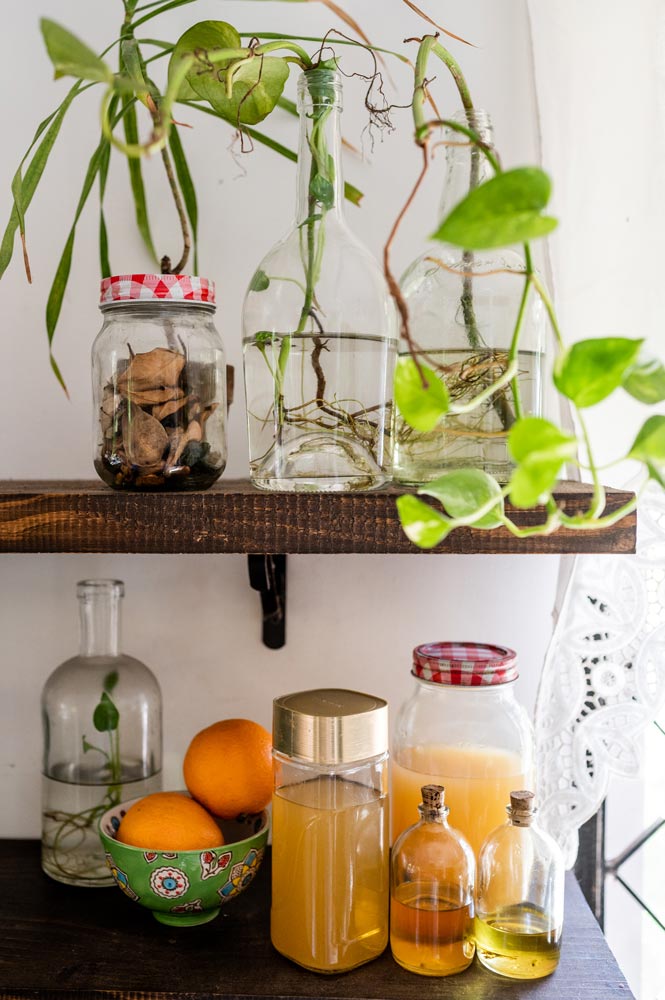Kitchens
- Category Name
- Kitchens
Get an approximate budget for your kitchen design by sharing your space details.
Speak to our design professionals
Share your info, we’ll book your slot.
Will you be living in your space during the renovation?
 Previous Question
Previous Question
 Previous Question
Previous Question
Please Select Date and Day
Appointment Date & time

On World Environment Day, we round up a simple guide of changes you can make right away for the planet's well-being
That the environment needs help is obvious. That the problem is larger than all of us, is also clear. So, can individuals and their actions make a difference. Do small fixes develop into big transformations? Yes, they do, certainly over time. Over the past few years, public change of sentiment has led to policy changes, and it is likely to continue. On days like World Environment Day, the conversation around this topic is louder, and it offers the perfect opportunity to make small, targeted changes in our day-to-day lives. This is a list of a few simple alterations that will make a difference; some things may sound obvious, but it's still worth pointing out:
"If you don’t know how to drive a car and yet sit in the driver's seat, it's going to lead to a blunder. Similarly, if you don't know how nature works, and assume that you are treating it right, the result will be the same," states Aakash Ranison, a 26-year-old climate activist. After extensive research Aakash put together a 50-page free-of-cost e-book that not only educates you about the environment but also lists out various solutions. Here is the link to access his e-book.
Other than this, there are various documentaries available on OTT platforms like Netflix.
"Managing a home garden has tons of benefits, it lets you to compost your waste and build a green space around you. In case of an apartment, you can still have a vertical garden in your balcony or near a window," says Aakash. Home gardens allow us to decide what goes into the food we eat. We can easily minus the harmful chemicals that pollute our environment, which is generally used for farming. Plus, it makes your home look green and peaceful too. Most people even opt for hydroponics, a new and easy way to be an urban farmer. Read our guide to Hydroponics here.
Experts advise repurposing water as much as possible. For e.g., the water that is used to wash vegetables can be collected and used for watering plants, toilet flushes or even mopping floors. "Choosing water conserving faucets is also a smart choice," advises Aakash. Asian Paints Bathsense offers dual flow aerators that save water up to 50%. Other than this, small things like choosing to use a bucket of water instead of a having a shower each time, turning the tap off while brushing teeth, make a lot of difference.
"I think the most important thing one can do is to limit their consumption and focus on reusing, repurposing and repairing," says Shruti Jain, founder of an ethical fashion blog called Style Destino. She has devised a 3-step method called ACE, to help people kick start their sustainable shopping journey. "A stands for 'Avoid'. If the brand doesn't incorporate ethical practices or the product is made of polluting elements, I completely steer away from it," says Shruti. "C stands for Consider. Whenever I choose to buy, it's from those who use eco-friendly methods and materials. Supporting artisans, designers and brands that are centered on bringing holistic change to the industry is the way to go," she says. However, constantly buying certain things like clothes or accessories isn’t the best way forward, which is why she suggests the third step, "E stands for Embrace. Using what you already have, borrowing from friends and family, renting, or shopping second-hand are the ideal choices," explains Shruti.
Carrying your own cloth bags and steel jars while shopping for groceries instead of plastic bags and packets that are handed to us is a small step towards reducing plastic waste. Even while shopping online for essentials, look for brands that don't use unnecessary packaging material.
If we are able to manage our waste well, half the battle against environmental issues is won. There won't be tons of garbage filled up water bodies and lots of diseases will be avoided. Segregating waste and then taking responsibility of where it goes is the correct way to manage it. All food waste can go into a compost bin. Paper, plastic, glass ceramic can go to a local raddiwala or recycling centers like Raddiconnect in Mumbai. All electronic waste can go to e-waste collection sites or vendors. Everything you don't need but is in a decent condition can be donated. You can check out our article on places to donate to here.
"Switching to home-made products is a cost-effective and eco-friendly option," says Shweta Mukherjee, a Goa based photographer popularly known as Mommygrapher on Instagram. "In an effort to make our homes cleaner we often forget that the world is also our home. So, I make my own bio enzyme for cleaning instead of buying harmful cleaning liquids that bring more plastic with them," says she. She also advises to switch to zero waste shampoo, conditioner, and soap bars instead of the ones that come in plastic packaging.
Investing in energy efficient appliances is a smart choice, especially in a world that runs on electricity. Also, use them only when necessary. For e.g., clothes and dishes can be air dried instead of using a dryer. Air conditioners and geysers can be used only when necessary. Remember to unplug any devices that are not being used. This is because even if when they are powered down, they continue to suck energy. Some people also opt for solar panels as an efficient way to power their homes.
Red meat needs approximately 9,000 liters of water to produce just 3 kg of meat. Poultry too takes a considerable amount of water for the same. The cows from the dairy industry and their manure produce greenhouse gas emissions that are extremely harmful for the environment. Considering the high demand, the number of resources put into this industry is untraceable. Simply reducing this intake will make a huge difference.
A lot of plastic products can be replaced, for e.g., disposable straws, toothbrush, bottles, and cutlery can easily be replaced with steel or bamboo ones. These can be carried around easily even when you are travelling to avoid purchasing more plastic. Even when you visit a local savoury snack vendor, you can carry a steel box to package or enjoy the food, instead of the single use plastic plate given to you at the stall. A point to note though is to use and reuse the plastic products that you already own instead of throwing them away.
Education is best when shared, especially in this case. Making people around you aware of these issues and the simple changes to implement will make sure that more people participate in creating a better world. In the case of children, molding young minds to live an eco-conscious lifestyle early on is our best bet for a good future. "I always say when you follow the lifestyle, kids learn it automatically. Kids these days are more conscious than we are. We just need to show them the right path. It's all about setting an example!" says Shweta, who is also a mother with experience. So even if it's baby steps, and most people may brush it off, it's worth a lot more than one can fathom.
For expert design consultation, send us your details and we’ll schedule a call
Yes, I would like to receive important updates and notifications on WhatsApp.
By proceeding, you are authorizing Beautiful Homes and its suggested contractors to get in touch with you through calls, sms, or e-mail.
Our team will contact you for further details.
We were unable to receive your details. Please try submitting them again.











